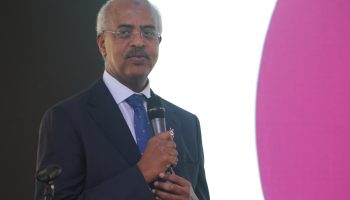- January 2, 2020
- Posted by: p mulee
- Category:
Kenya experienced a mixed share of fortunes in 2019.
The country’s economy, just like the global one, has had slower growth in the first six months largely due to friction in the global trade, occasioned by US-China trade war.
Even so, the slowness was attacked by sound government policies that saw inflation kept in check, dropping to a year low of 3.83 in September.
The shilling, on the other hand, stabilised against major currencies and is now in the margins of Sh100 to a dollar, reducing import costs for local businesses.
Our forex earnings picked pace during the year, shrinking our trade deficit that is currently at an impressive 4.2 per cent.
For the National Treasury, 2019 was a year of reworking our different policy frameworks to support the economy. That is why I can only visualise a better 2020.
In November, President Uhuru Kenyatta assented to the Finance Bill, 2019, which, among other things, scrapped the interest cap law that was among primary factors that derailed economic growth.
Apart from that, we managed to design a debt policy and borrowing framework to improve the quality of debt management decisions, debt statistics, analysis, reporting and dissemination and commitment to financial planning.
This, together with other debt management policies like the capping of public debt at 9.1 trillion, is likely to sustainably manage our debt obligation.
This year, I promise to initiate and implement more borrowing policy framework to secure predictability. I also intend to restructure debt stocks by refinancing or substituting the commercial elements with concessionary ones. Review and renegotiations of some loans.
Recently, the National Treasury and the Salaries and Remuneration Commission (SRC) led a host of national and county government agencies in relooking at the country’s wage bill.
At least 15 resolutions were made at the end of the three-day conference. It is on this backdrop that I promise to effectively manage government expenditure and sustain cuts to reduce wastage.
This will be done by sealing loopholes in revenue leakages, inject efficiency in revenue enhancement through automation and employing more personnel at the Kenya Revenue Authority (KRA).
I will work with KRA to modernise tax measures and stimulate the economy with a view of targeting job creation.
Delays in paying suppliers by both government and the private sector have also contributed to low liquidity in the market, hampering business activities. I want to reiterate my promise to see to it that both national and county governments settle all pending bills owed to the private sector, including SMEs, expeditiously.
We will do this by employing additional administrative measures in dealing with individual officers who fail to comply.
Going forward, I promise to ensure strict implementation of budgets, ensuring there will be no commitment or overcommitment outside the budget.
And to brew the country’s development path, I promise to facilitate the implementation of Big 4 projects through the timely release of funds.
The National Treasury will establish a project implementation unit to monitor ongoing projects with a view of raising the red flag should there be delays or bottlenecks along the way.
Rampant corruption continues to drag the country behind, with huge financial resources meant for development activities looted by few greedy public servants.
It is on this basis that I promise to inject and sustain a culture of openness and transparency at the Treasury in dealing with public matters from debts management, budget to expenditure.
Last but not least, I promise to strengthen Kenya’s relationship with global financial agencies as well as regional economic blocs to consolidate Kenya’s influence and standings.

















Thank you for any other informative website. The place
else may just I get that kind of information written in such a
perfect method? I’ve a project that I am
just now operating on, and I’ve been at the look out for
such information.
I do agree with all of the ideas you’ve introduced to your post.
They are really convincing and can certainly work. Nonetheless, the posts are too quick for starters.
Could you please lengthen them a little from next time? Thank you for
the post.
Wow, marvelous weblog format! How long have you been blogging for?
you make blogging glance easy. The overall glance of your site is
wonderful, as well as the content material!
cheap flights 31muvXS
Hello Dear, are you genuinely visiting this web page regularly,
if so afterward you will absolutely obtain pleasant know-how.
cheap flights 2CSYEon
Write more, thats all I have to say. Literally, it seems as though you relied
on the video to make your point. You clearly know what youre
talking about, why throw away your intelligence on just posting videos
to your blog when you could be giving us something informative to read?
Very interesting information!Perfect just what I was looking for!Raise blog range